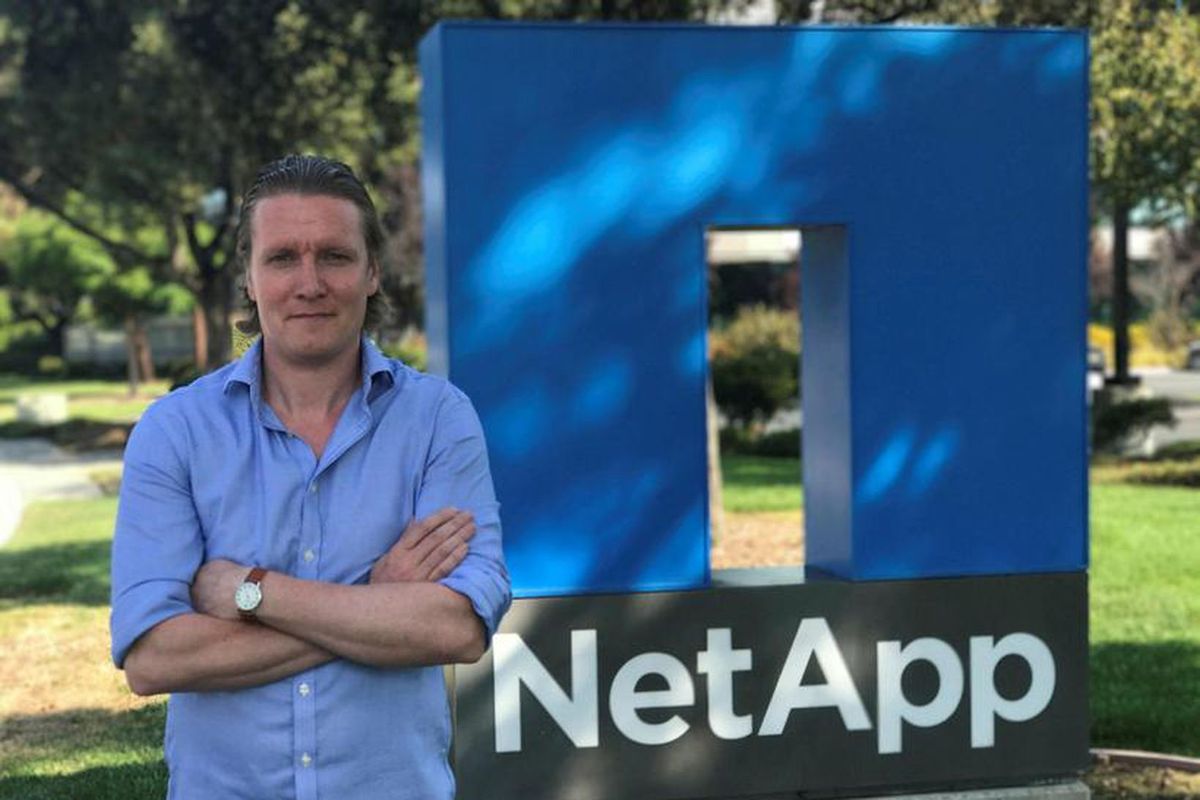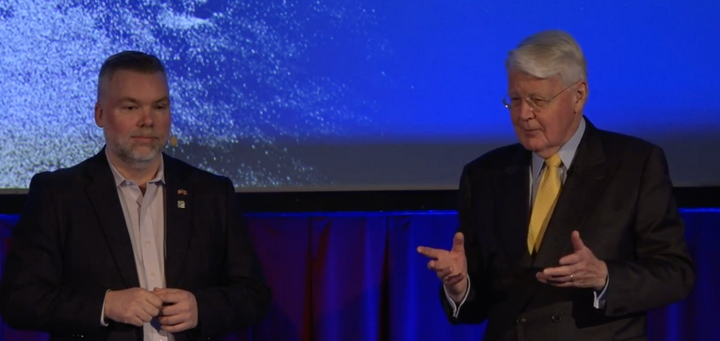An uncommon story: NetApp doubles down in Iceland - interview with Jonsi Stefansson CTO & VP Cloud, NetApp

This post originated in the Memo, our (almost) weekly newsletter. Click here to sign up.
This article has been updated with correct information about Novomatic Lottery Solutions/Betware, which didn’t close down shop completely, as the remaining office was acquired by Next Generation Lotteries.
On August 4 2017, Silicon Valley based Fortune 500 company NetApp acquired all outstanding shares of Greenqloud ehf., for $51m in cash (the day when I broke that number was probably my peak as journalist, first outlet to break that number in the world!).
The acquisition came at a good time for the Icelandic ecosystem. The New Business Venture Fund got some much needed cash, after being mostly deployed for some time; Kjölur cashed out and invested back into gaming startup Solid Clouds, and we could again discuss an acquisition in the tens of millions.
The question with these acquisitions, especially when the acquirer is a multinational with HQ elsewhere is: how long will they stay, and will they continue to invest? We’ve had several of acquisitions, like Clara, Betware, Datamarket, Modio, NextCODE, and more recently Algrím, but the amount of investment (as in: capital deployed into the development of product and talent in Iceland post acquisition) has varied. Clara immediately moved out, Modio closed, Betware (then Novomatic Lottery Solutions) went through drastic downsizing and now lives on as Next Generation Lotteries, NextCODE (now Wuxi Nextcode) is (based on my sources) downsizing, Datamarket still has an office here, and Algrím – very recently acquired – aims to build up operations (which is great news).
On the other hand we have Bókun, acquired by TripAdvisor, and has been expanding since the acquisition, and now NetApp, which immediately after the acqiusition grew somewhat, announced just before Christmas that it was hiring 25 devs, and two months later has already hired 20.
And that’s very important for the ecosystem. The government, and broader society, is focusing a lot of its time and resources on improving the ecosystem for innovation driven entrepreneurship. The end-goal there, from a big picture point of view, is not to build out a couple of 5 people teams that cash out a couple founders and investors (although that’s great as well, recycling money, providing returns for investors and hopefully starting founders back on to their next journey), but to build out a new pillar in the broader economic landscape that is Iceland.
It’s essential for the broader tech and innovation ecosystem that we have a good staple of internationally connected and active medium to large sized companies, that not only provide high paying jobs (and thus, tax money), but also train, connect, and develop the talent that is in Iceland, and hopefully pull in talented staff from abroad to start working here.
Sadly, that hasn’t happened very often. The reasoning being everything from being far away from some things, to expensive talent, or lack of access to talent. But when we see a tech company deciding to continue their current investment and adding to it, it’s a very positive thing for the ecosystem.
To dig deeper, I had a chat with Jónsi Stefánsson, CTO and VP Cloud at NetApp (and former CEO of Greenqloud when the company was acquired). As usual, Bold is me, italic is Jónsi.
First off, why is NetApp investing in the Iceland operation, adding up to 25 to the office. Why Iceland, rather than any of the other places?
So, the NetApp Cloud Business unit, which I lead, has engineering operations in several places: Reykjavik, Seattle, Silicon Valley, RTP, Bangalore, and Tel Aviv. That means the investment would always be in one of those places.
The advantage, and one of the main reasons behind us growing the Iceland office, is that that office has always been working on cutting edge technology for the company. We’re investing further in our Service Delivery Engine (SDE), that is built on-top of Kubernetes (K8s) and believe that part of our products will be driving our success in the new world of everything-as-a-service. This is the key for our deep integration with all the public clouds as 1st party services.
Another important point, is that the Iceland office has shown great success in onboarding new talent quickly and effectively. And that’s, partly at least, due to the culture there of hiring people in and basically throwing them into the deep end of the pool. So far, we’ve been successful in helping people get up to speed fast, and become productive faster than in other places.
And thirdly, this luckily is up to me, and I believe in having people working together at the same location. With micro-services you can split up a full stack into multiple components that different teams can develop and move at their own pace. I want those teams to be in the same time zone.
Those are some very interesting points, especially the one about the getting up to speed quickly. But what about the costs? That’s usually the main complaint from businesses that talent cost and added costs are too much of a burden for investments to make sense.
Yeah, costs are obviously a topic. Compared to some of the other places, like Bangalore, the costs are much higher, both direct salaries and other costs. But compared to places like Seattle or Silicon Valley, the salary costs are lower in Iceland. In Iceland it’s more about the added costs, payroll taxes (is. tryggingagjald), pension costs and so on, which get added that make the financials look bad. And for our employees working for a publicly traded company, having income tax on options, instead of capital gains tax has also blocked people from wanting to re-locate to Iceland from elsewhere within the company.
This to me also really hurts startups. as startups cannot compete with large companies on salaries alone. So in order to compete, startups always have to use options or equity in the company as the potential upside for accepting lower salary and taking the risk of joining a startup. That potential exit will more than make up for the salary loss.
I really want startups to be able to compete with me as NetApp. One of the best thing our government can do for the startup environment is to simply apply capital gains taxes on options instead of income taxes.
Guess those damn bankers ruined that for us 🙁
But what about the R&D tax incentives; the government recently doubled the amount available for deduction.
After the acquisition, I don’t think we are using that. I’ve pointed it out to my colleagues but I guess we just haven’t put in the work to receive the grants. This is now all handled by the global finance team in NetApp. We basically have 95% of our staff in Iceland just working on R&D.
Interesting. Another thing I’d like to explore a bit better is what you mentioned about the product. That the cutting edge development of NetApp was taking place in Iceland. Can you talk about that a bit?
Of course. Yes, when NetApp acquired Greenqloud, we’d been working on the hybrid cloud management platform called Qstack and especially our Kubernetes implementation. That technology helped companies manage their cloud, providing the ability to manage both the customer’s private cloud, as well as public clouds like the Google Cloud Platform, Microsoft’s Azure, and AWS.
That platform is now our Service Delivery Engine that manages all of our services. My team provides the platform and develops most of those services that run on top of it.
As a matter of fact, we’re working very closely with our partners. Our engineers are split into groups, working on the Azure platform and Google Cloud platform, and they’re developing software directly into those platforms, which shows how connected and close to the cloud giants our development teams are. From my point of view, this is very likely the only place in the world were you are working this closely with engineers and marketing folks from 3 out of the Fortune 5 companies in the world.
That’s very interesting, and exciting, for the Icelandic market. But talking about that, the Icelandic market, hiring in it, especially when you’re hiring a lot of people, can be quite the challenge. How’s it been for you after these newest announcements?
We’ve been very lucky and been working on growing our local presence towards the job market which apparently has paid off, as we were able to hire a good amount – 20 developers are quite a bit for the Icelandic market – in this short time. After these recent additions, I don’t think there are many companies in Iceland with as many developers as NetApp, both as a percentage of the company, and as an absolute number. It’s really something.
Did you like this article? If so, please consider supporting Northstack. You can support Northstack and the continued coverage and discussion of the Icelandic startup, tech and venture scene with a small monthly donation.




